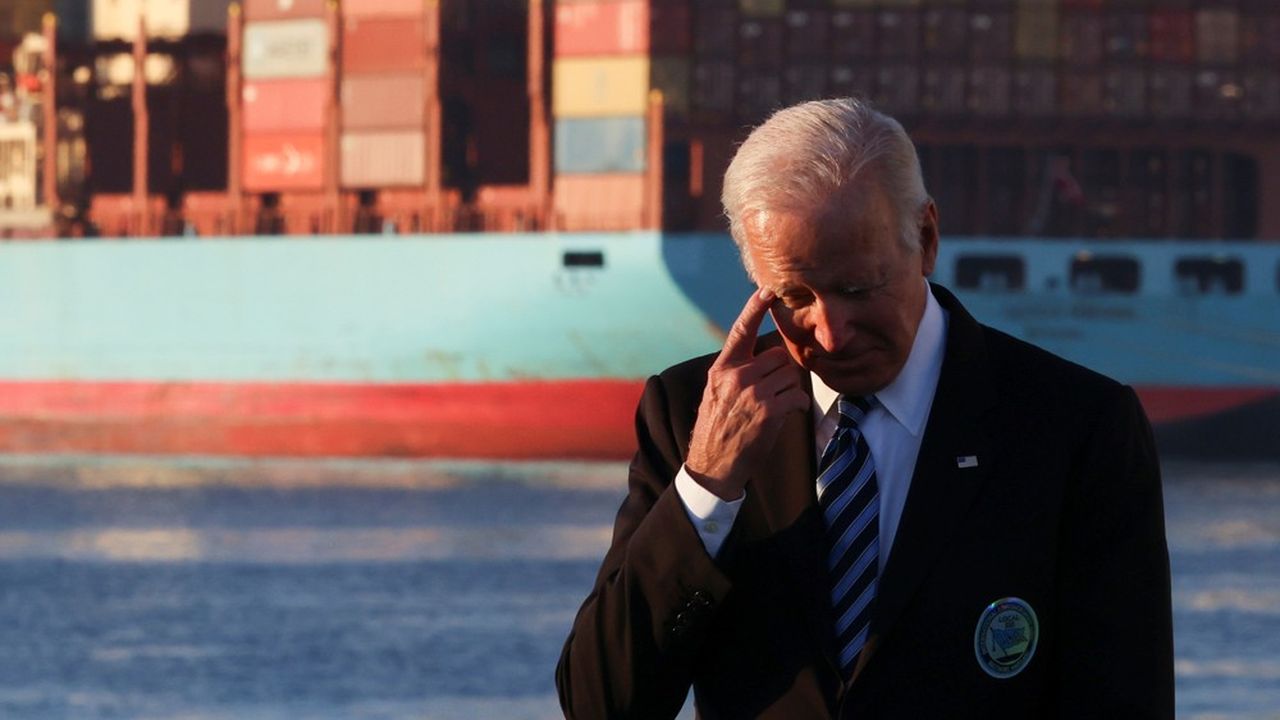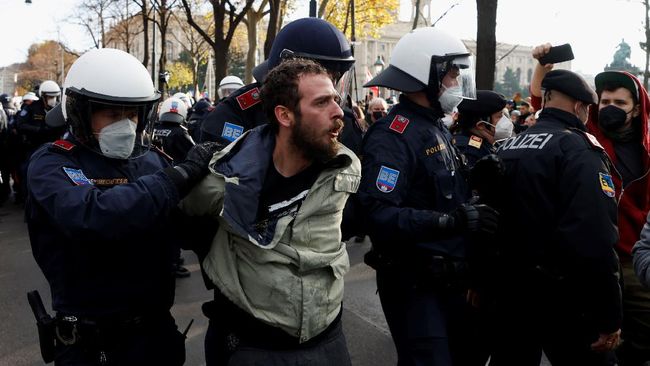Posted on Nov 22, 2021 at 7:45 amUpdated Nov 22, 2021, 8:53 AM
Good news: “Anyone who wants a turkey for their Thanksgiving dinner will be able to get one, and a big turkey will only cost a dollar more than last year,” said US Secretary of Agriculture Tom. Vilsack. Family conversations next weekend are nonetheless likely to revolve around the key subject in the United States: inflation. Consumer prices rose 0.9% in October, a jump of 6.2% year on year.
Nearly 9 in 10 Americans (87%) now say they are concerned about rising prices, according to a Morning Consult poll. And the US central bank, responsible for ensuring price stability, does not foresee a real lull before, at best, next spring. The subject has opened a new front for Joe Biden, whose popularity has been falling continuously since the summer: a 12-point gap now separates those satisfied with the presidential action (41%) from the dissatisfied (53%), according to the average of polls synthesized by RealClear Politics.
Getting out of a defensive position
The Biden administration is not responsible for all the price hikes: Oil prices have doubled year over year, and electronics component shortages or job pressures are reaching beyond U.S. borders. But the opposition points to the impact of the generous stimulus plans, which have inflated household portfolios. “The Biden administration took a risk that was not necessary, by oversizing the stimulus, when they did not need to spend as much”, also judges Thomas Philippon, professor of finance at New York University.
After moderating concerns for several months, the White House now ensures that it is taking the subject head-on. “Inflation is hurting Americans’ wallets, and reversing this trend is a top priority for me,” said Joe Biden. National Economic Council Director Brian Deese and Treasury Secretary Janet Yellen scoured television broadcasts to clear the case.
The White House is trying to get out of a defensive position, pointing the finger at the responsibility of the oil sector, a rare short-term lever on which it can act. On November 17, Joe Biden published a new letter sent to the Competition Constable, the FTC, asking him to look into the formation of fuel prices. By pointing out the profits of oil groups, up sharply compared to 2019.
Risks in perspective
The main room for maneuver to cool prices remain the responsibility of the Federal Reserve, independent. And the White House, unlike Donald Trump, avoids putting pressure on monetary policy interventions. But the inflation debate is polluting the timing of the appointment of the next Fed boss – Jerome Powell for a second term or Lael Brainard.
While some economists had pointed to the inflationary impact of the stimulus measures last March, they mostly come to the aid of the White House to put the risks of the new spending plans into perspective. “Unlike the 5.5 trillion dollars in support measures adopted over the past eighteen months, most of BBB’s spending (‘Build Back Better’, the social and climate reform plan, Editor’s note) would be spread over ten years and would be offset by tax increases and spending cuts, ”said Nancy Vanden Houten, of Oxford Economics, in a note.
Ditto for investments in infrastructure, voted in early November. “The idea of ready-to-go projects is a myth, we expect government spending to increase only gradually and the impact on inflation will be minimal,” she said.
–


